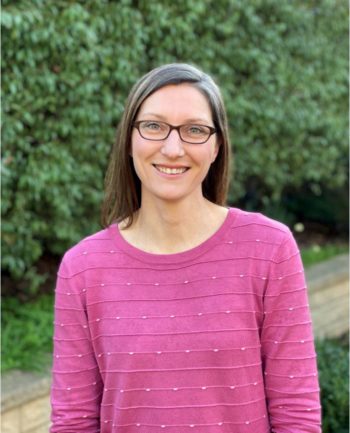
Elise joined Flinders in July 2019 to work with Professor Jonathan Gleadle and Dr Darling Rojas-Canales in the Flinders Renal Lab as a Research Assistant. In October 2019 she also took on the oversight role of the tissue culture facility in FMC.
What is your professional background? I graduated from a B.Sc (Biotechnology)(Hons) from the University of Newcastle a long time ago. I spent almost 20 years in the field of plant molecular biology working at the University of Adelaide, University of Freiburg (Germany), the Australian Centre for Plant Functional Genomics and CSIRO (Agriculture and Food). I have worked on projects examining floral transition in grapevine, marker assisted breeding in wheat, embryonic stem cell initiation and maintenance in Arabidopsis and technologies controlling reproduction in wheat, Arabidopsis and cowpea.
Was there a seminal moment led you to a professional research staff career? I first became interested in science while studying food technology at school. I was fascinated by the idea of breeding or engineering square potatoes to make longer chips! I have not worked on any potato projects, but I have been involved in wheat breeding programs for yellow noodle colour! As a professional researcher I have had the opportunity to work on interesting and diverse projects with many great scientists, and I have even managed to get a few good publications and a patent.
Hang on, what? A patent?! Yes, I developed a patent that relates to work carried out in a collaborative project between the Australian Centre for Plant Functional Genomics and Pioneer Hi Bred International Inc (now known as Corteva Agriscience – an international seed biotechnology company). The patent covers the use of sequences that can be used to modulate male fertility in plants – this has implications for hybrid breeding systems that could lead to significant increases in plant yields, particularly for wheat.
Who has most inspired you? My husband Matthew (also a scientist) has been a source of inspiration – he is dedicated to his research, students and colleagues and continuously encourages them to achieve success. He has shown me that determination, hard work (and long hours) and diplomacy can lead to great opportunities. There are many scientific conversations at our dinner table!
Do you have a mentor? I have had many mentors and role models throughout my career. At Flinders, Angela Binns has been an inspiration – she is the go-to person for so many questions, she is so knowledgeable, can quickly find a solution to a problem and she always has time to help. As far as being a mentor, I enjoy helping people and I have been involved in the CMPH mentoring program as a mentor to a professional staff member. This experience made me think a lot about the decisions I have made as a professional researcher and the way I operate in the lab.
What piece of advice would you give to aspiring professional research staff? Learn new techniques, do not be afraid to ask lots of questions, remember you are not “just” a technician or assistant – you are vital to the research. And of course, make the most of the opportunities you are given!
What is something about yourself others may not know? I REALLY like doing jigsaw puzzles.
What do you value most about working at Flinders? I really value the opportunity I have been given to work on an interesting project with a great group of people.
What’s one thing you couldn’t live without? My family.

